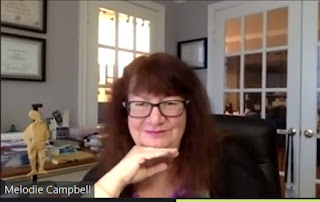SIX Reasons Mystery Manuscripts Fail
I was talking to a former student the other day about his classic mystery manuscript. It's really good in so many ways - so good in fact, that it was shortlisted for the Crime Writers of Canada Unpublished Manuscript award. However, this manuscript has yet to to be picked up by a publisher or agent.
So that got me thinking, why not? What could be the reasons novice novel writers might just miss the boat?So here goes. Based on my reading of over 1000 manuscripts (from being a judge of various contests, and being a teacher of advanced novel writing for over thirty years) here's what comes to mind first.
Why Mystery Novels Fail:
1. Too Many Characters
I was reading a manuscript the other day that had me so confused, I went back to review my own work. In my latest novel (The Merry Widow Murders, out early 2023 from Cormorant) I have 12 named characters. The protagonist, her sidekick, her lover, six suspects and or victims, plus three secondary characters (total 12.) I then went to my client's manuscript and stopped counting at 20.
Too many character can be hard to keep straight and will take a reader out of the story. In this case, I advised combining a few characters and not naming people who only appear as support (the taxi driver, the Porter, the woman behind the cash.)
2. No Clear Protagonist
So many times I've heard students say to me, "Oh, my novel has three protagonists." And I calmly tell them the accepted definition of a novel: A protagonist with a problem or goal, and obstacles to that goal.
The problem with having more than one protagonist, I explain, is the reader doesn't know whom to root for. Have you ever dropped a book after about ten pages? Chances are, you didn't care about the protagonist.
The first job a novelist has is to make readers care about the protagonist, so they will want to find out what happens to him/her/they. Of course you can and should have strong secondary characters. I always recommend a close sidekick, for the reason below.
3. No Close Sidekick
It's a trick experienced novelists have, you might say. Give you protagonist a sidekick to talk to, so that there aren't pages and pages of internal monologue. Dialogue is active; monologue is telling. Give your protagonist a Dr Watson or Captain Hastings, and they can discuss the case together, making it a much more dynamic read.
4. Not Enough Suspects
This should be obvious. A mystery novel should be a mystery
until the very end, when you find out whodunit. I've queried
several publishers, and they tell me you need at least three
good suspects for a mystery novel. Even better if you can
develop five. If you have only one good suspect and he/she/they
is obvious from the start, then it's not a mystery! It may
still be a crime novel (including caper, suspense or thriller)
but if the perp is obvious, well you're simply not writing
classic mystery.
5. Violating the rule of Chekhov's Gun
Yes, that Chekhov - the one we tried to get out of reading in high school. To paraphrase his famous rule: If you point out there is a gun hanging on the wall in the first chapter, it absolutely must be fired by the end of the book.
I was reminded of this rule while reading a manuscript recently that had the action chapters interspersed with the insertion of diary excerpts. Trouble was, the diary excerpts were several pages long, and the reader (me) had no idea why she was supposed to be reading them. It took one out of the story. In the end, much of the information in the excerpts had no bearing on the crime.
It's that last bit that makes me think of Chekhov's gun. Sure,
someone will say we need red herrings in a mystery novel. But
info-dumping a whole bunch of information at once that may have
no bearing on the crime can be a reason a book is not picked up
by a publisher.
6. The Protagonist Does Not Solve the Mystery
Okay, we all know that mysteries need to be solved by the end. That's the whole point of them. No one reads to get to the middle, as Mickey Spillane said. They want to get to the end, and there better be an ending. All my students know this. But what they sometimes forget is that the protagonist needs to be in at the 'kill'. Most readers (and therefore publishers) will not accept a mystery novel where the protagonist is 'told' who the killer is. They want the protagonist to come to that conclusion by examining a series of clues and making brilliant, while logical deduction
That's the first six that come to mind. Have you any to add?
Melodie Campbell writes capers and mysteries, along with pretty much anything else publishers will pay her for.

